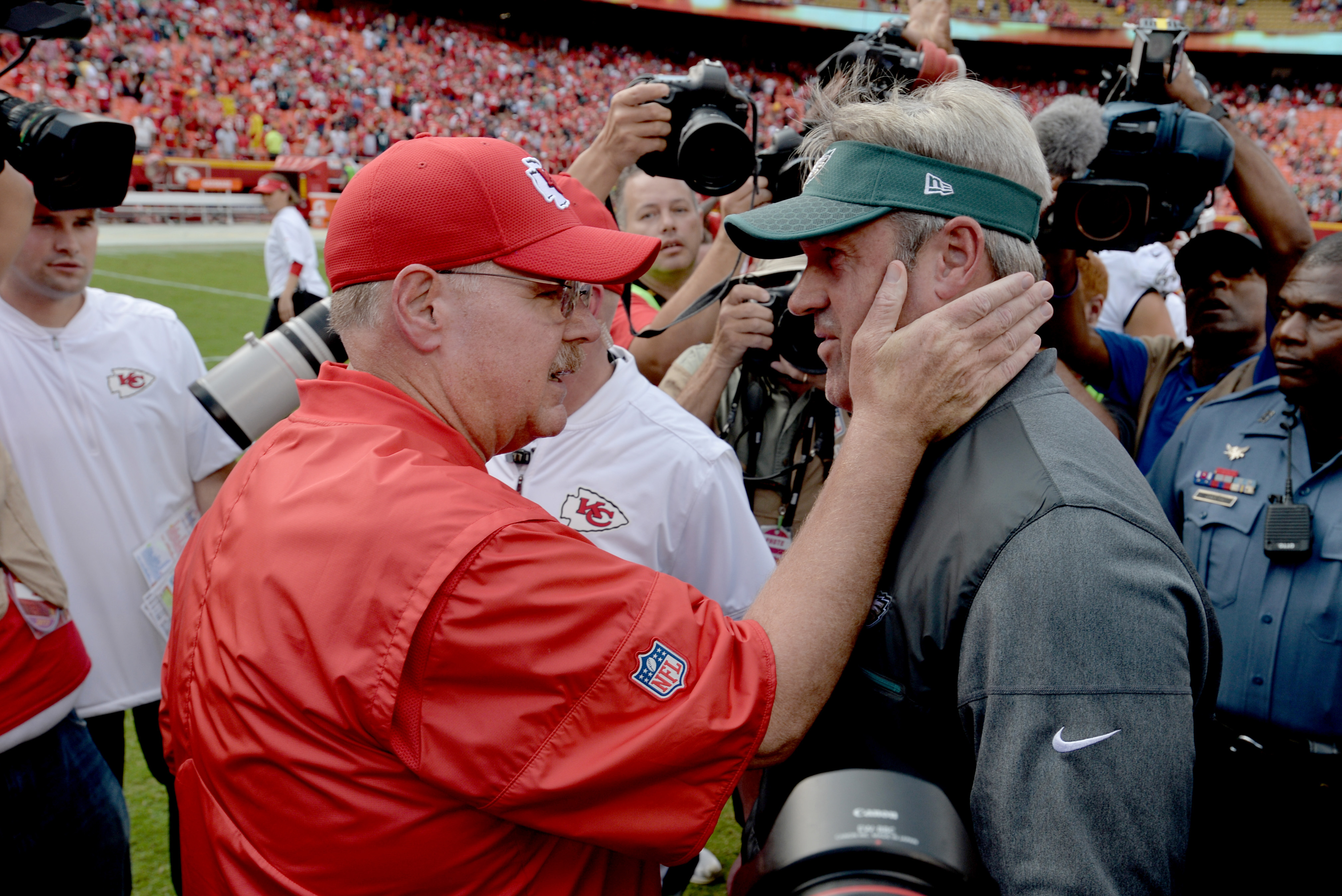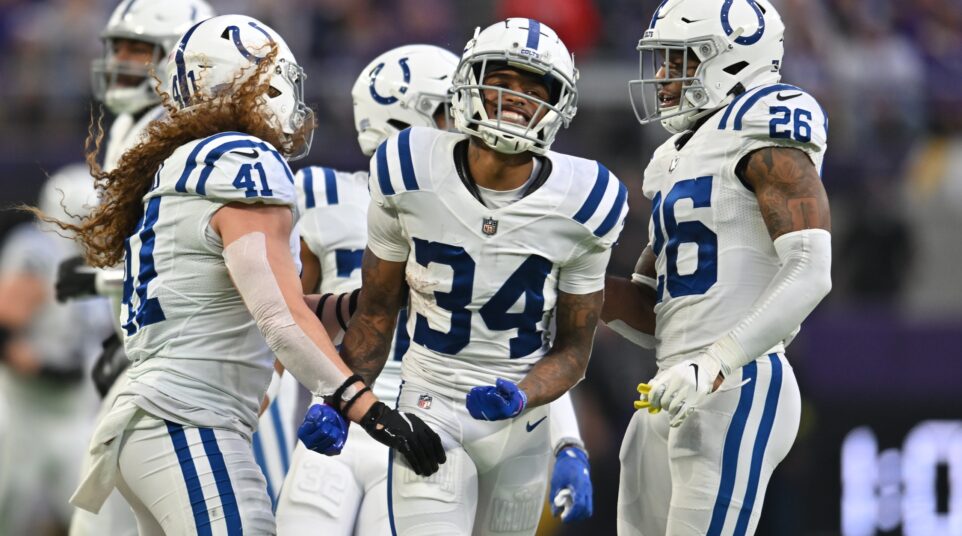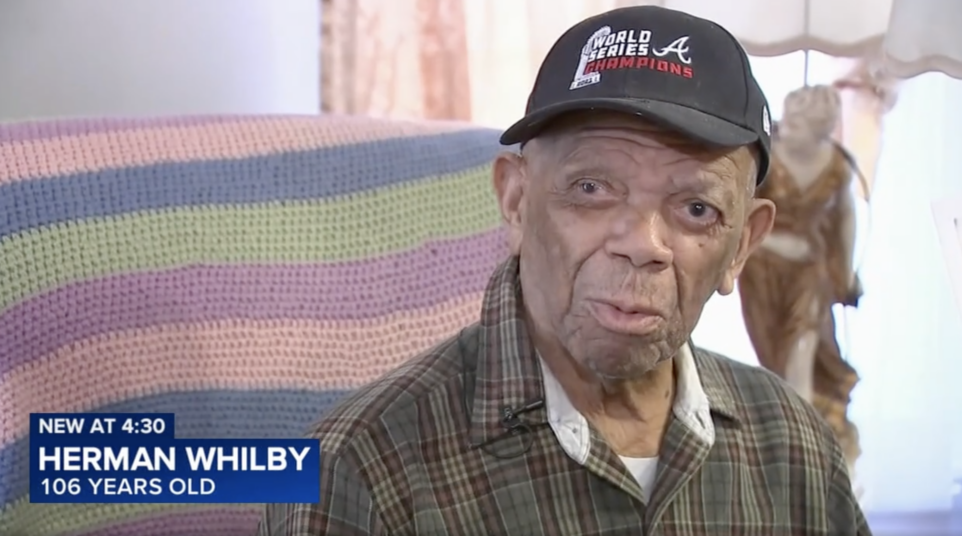
As Andy Reid Succeeds in Kansas City, The Eagles Lack Direction
Carson Wentz stood near midfield and hurled a desperate pass toward the end zone. The brief flicker of hope that arose as the ball traveled through the air was quickly snuffed. Wentz’s Hail Mary prayer went unanswered, and the Chiefs prevailed over the Eagles by a score of 27-20.
In the aftermath of the game, two truths reasserted themselves: (1) The Kansas City Chiefs are legitimate Super Bowl contenders; (2) The Lombardi Trophy remains as elusive as ever for the Eagles franchise.
The common denominator that informs both observations is Andy Reid. Since Reid was driven from the Eagles’ nest in 2012 and landed in Kansas City, his Chiefs teams have been a model of consistency. In four seasons and two games in KC, Reid has compiled a 45-21 regular season record, good for a .682 winning percentage. He inherited a Chiefs team that was in total disarray and breathed new life into the franchise. In so doing, Reid has rejuvenated his own coaching career.
Meanwhile, the Eagles’ rebuild seems to be operating on the same time frame as the I-95 construction. It turns out it hasn’t been so easy to replace the foundation that Reid laid over the course of fourteen seasons, particularly when the wrong contractor is hired for the job.
The early days of 2013 were marked with optimism and excitement in Philadelphia. With Big Red gone, the Eagles finally had a chance to soar again. Eagles fans were in such a frenzy that we talked ourselves into Gus Bradley, the putative architect of the Seahawks’ elite defense. The Eagles were apparently ready to offer Bradley the job. A local blogger fed the hysteria by tracking Bradley’s cross-country flight. We were all on board the Gus Bus!
But then, out of nowhere, the news emerged that the Eagles had hired Chip Kelly. Eagles owner Jeffrey Lurie marveled at Kelly’s innovative approach. “He has a brilliant football mind. He motivates his team with his actions as well as his words,” Lurie noted in his statement announcing the hire.
It was small wonder that Lurie was enchanted with Kelly. The Eagles owner sounds like a guy who loves a good TED Talk, and Chip Kelly dissected football in a way that appealed to his boss’s intellectual sensibilities.
I remember touring the NovaCare Complex during a Chalk and Talk event early in Kelly’s tenure. The building’s walls were adorned with inspirational quotes from famous people. The PR guy who was assigned to shepherd the group through the facility spoke glowingly of the recently-installed coach. There was a new culture in the building, he said.
The new culture seemed to consist of borrowed wisdom and unearned confidence. The food was good, though.
After three seasons, the Chip Kelly experiment came to a merciful end. It turns out a no-huddle offense works well as a tactic, but not so much as an organizational philosophy. Great offenses are tempo manipulators. They go fast when they want to go fast, and they slow the game down when it suits their needs. The decision depends on the situation. The New England Patriots serve as the best example of a team that selectively incorporates no-huddle concepts.
Lurie wanted Kelly’s successor to exhibit “emotional intelligence.” It went unmentioned, but it also likely was a prerequisite for the job to import an offense with enough complexity that opposing defenses wouldn’t call out the plays before the ball was snapped.
And so, the Eagles turned to Doug Pederson. The market for Pederson’s services was quite literally nonexistent. He may not have been the best head-coaching candidate on the Chiefs’ staff. But he was the Eagles’ choice because he most resembled Andy Reid. It remains an open question, though, if Pederson can replicate his mentor’s success.
Despite an uncharitable assessment from Mike Lombardi, a former executive who spent a career standing on the shoulders of giants and now thinks himself tall, Pederson may well have what it takes to lead the Eagles back to relevance. Lombardi pointed to Wentz’s regression throughout his rookie season as a testament to Pederson’s incompetence, but failed to mention that the Eagles’ instability along the offensive line correlated with the young quarterback’s performance dip. It also didn’t help that the Eagles’ receivers couldn’t catch the football. One should never let a little thing like context get in the way of a hot take, though.
The Eagles have invested heavily in both position groups. While the running game remains a question mark, the talent is mostly in place to allow Wentz to thrive as a signal caller and his coach to grow as a playcaller. Let’s give the tandem a full second year to develop before we condemn it as a failure.
That said, Pederson’s detractors might be correct. Eighteen games into his head coaching career, Pederson has at times exhibited some of the worst tendencies of Andy Reid. For one, he seems incapable of managing the clock effectively. Even Herm Edwards thought the Eagles’ two minute drive at the end of the Chiefs contest was poorly handled. He has also tended to lose patience with the running game, which he mostly abandoned on Sunday.
If these bad habits aren’t addressed and this season’s results prove the Eagles’ head coach isn’t capable of handling the job, then the rebuild in Philadelphia will take another left turn.
However, here’s hoping this time we have the right man in the driver’s seat.





